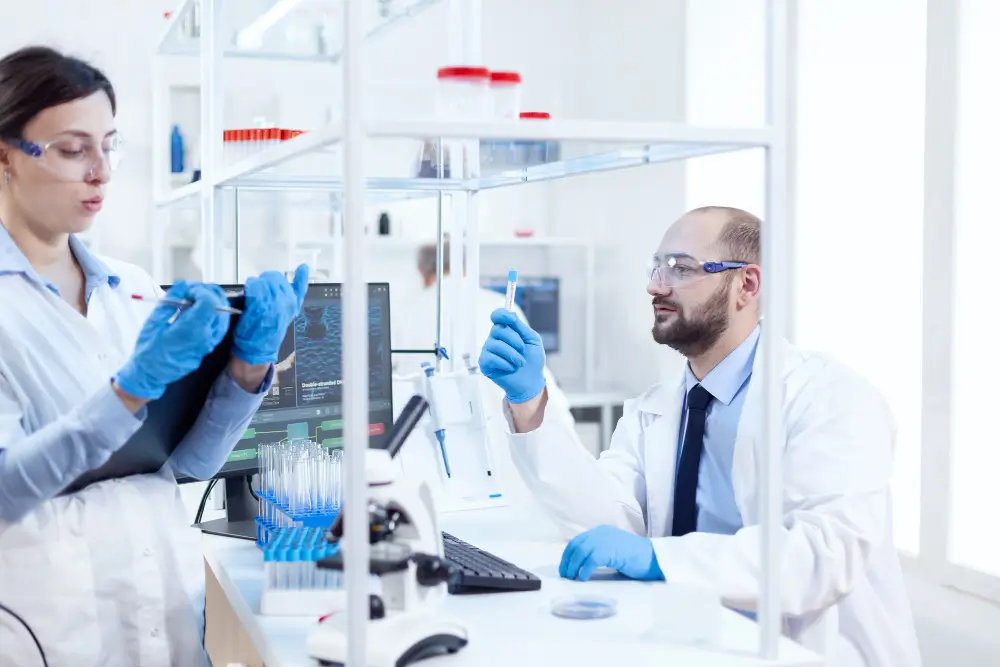Frozen embryo transfer (FET) has been a very successful and increasingly preferred technique in assisted reproductive technology or ART over the last few years. In contrast to fresh transfer, FET enables embryos to be saved by cryopreservation and later transferred when the uterine environment is healthier. The process has opened up the doors for future parents around the world, as well as those who work with agencies such as Indian Egg Donors that specialize in providing individualized and affordable fertility options. Most of these programs also offer access to frozen donor embryos, which increases the possibilities for intended parents.
But what are the true rates of success for FET, and what determines them? Here’s a look at the most important factors that affect the likelihood of a successful pregnancy with frozen embryo transfers.
What is a Frozen Embryo Transfer?
Frozen embryo transfer (FET) is a procedure in which an already frozen embryo, usually produced by in vitro fertilization (IVF), is thawed and transferred into the uterus. This is applied when:
- The embryos are reserved for future pregnancy or sibling tries.
- Preimplantation genetic testing (PGT) is required.
- Egg donors or surrogates are used by intended parents.
FET has become a central part of contemporary fertility treatment through offering flexibility and additional timing.
Average Success Rates of FET
Frozen embryo transfer success rates have also improved over the years. The general success rate of FET cycles, as per statistics of top-rated fertility clinics and national databases, is between 50% and 70% depending on various factors. The rates are comparable, if not higher in some cases, to fresh embryo transfer success—particularly when they utilize high-quality embryos.
Clínics throughout the USA continue to monitor and report IVF success rates in the USA, keeping patients making fertility-related decisions adequately informed. Indian Egg Donors’ success rates are carefully monitored and maximized with the latest laboratory protocols and individually formulated treatment plans. Their staff takes care to freeze embryos at the best time of development—usually the blastocyst stage—which is a key factor in successful implantation.
Key Factors That Influence FET Success
Despite the encouraging results with FET, some clinical and lifestyle aspects determine success:
1. Embryo Quality
The embryo quality is the best determinant of FET success. The remaining embryos after the freezing and thawing process should be healthy, ideally at the stage of blastocyst (Day 5 or 6). Embryos developed from donor eggs or those that have been subjected to preimplantation genetic testing are more likely to produce improved outcomes because they are healthy and virile. Actually, donor egg success rates are better compared to eggs from older donors, particularly if the donor is in her 20s.
2. Age of the Egg Provider
Age plays an important role in the quality of the embryo. When the donor was in her early 20s, the chances of implantation and live birth were significantly higher. This is one reason why intended parents prefer time-tested organizations such as Indian Egg Donors, which screen their egg donors carefully for fertility factors, health, and age. Those thinking of donating may quite possibly ask, How long is the egg donation process? — Varies but usually several weeks to several months, depending on screening and cycle planning.
3. Endometrial Receptivity
Uterine receptivity at transfer time is of the utmost importance. The endometrial lining needs to be of optimum thickness and hormone-levelled to enable implantation. Hormonal preparation cycles are a standard tool of clinics to time transfer with optimal uterine receptivity.
4. Cryopreservation Techniques
Modern advanced vitrification (flash-freezing) techniques have made embryo freezing a highly successful process, with improved survival rates after thawing. Indian Egg Donors utilize the newest cryopreservation technologies that minimize the risk of cellular damage by the freeze-thaw process. Some patients also avail services from a frozen egg donor bank where good-quality donor eggs are stored in inventory and matched with recipients for future IVF procedures.
5. Lifestyle and Health Factors
The overall well-being of the gestational carrier or target mother is also an influence on success. Being a healthy weight, smoke- and alcohol-free, having diseases under control, and experiencing low stress can all play a positive part in FET success.
Fresh vs. Frozen: Why FET May Be the Better Option
Now that this method is once more common with fresh embryo transfers, new studies show that FET may provide better outcomes for some:

- Less Chance of OHSS occurring in high responders
- Patient and clinic scheduling advantage
- Stratifies endometrial receptivity much better through hormonal standardization
- Window to genotyping and preparing
In clinics such as Indian Egg Donors, FET has become the preferred process, especially when dealing with international patients, surrogates, and egg donors, keeping the process well-established and smooth over distances.
Choosing the Right Clinic Makes a Difference
As valuable as embryo quality and uterine status, so too is the experience and approach of your fertility clinic. Those clinics with large numbers of patients who travel from a diverse mix of backgrounds, including Indian Egg Donors, will have consistently high success rates.
These clinics blend advanced technology with individualized attention to plan every cycle to meet the medical and psychological demands of the future parents.
Frequently Asked Questions:-
Q. What is a frozen embryo transfer (FET)?
Ans : A frozen embryo transfer is when a previously frozen embryo—often created using frozen donor embryos—is thawed and placed into the uterus to achieve pregnancy.
Q. What are the success rates of FET?
Ans : FET success rates are generally 50% to 70%, depending on such things as embryo quality and uterine health. These success rates generally equal overall IVF success rates in the USA for first-rate clinics.
Q. Does embryo quality affect FET success?
Ans :Yes, good embryos—particularly the blastocyst stage—genuinely boost the prospect of a successful implant. Egg donation success rates are also improved by utilizing younger, healthier donors who provide higher-quality embryos.
Q. Can FET be more successful than fresh transfers?
Ans : Yes, in the majority of cases. FET is able to offer superior results because conditions in the uterus are improved and timing is optimized, especially when using a frozen egg donor bank with better cryopreservation techniques.
Q. Why choose Indian Egg Donors for FET?
Ans : Indian Egg Donors has freezing technology in advanced levels, donors who are screened, and personalized care to ensure high FET success rates. They also walk patients through step by step, such as understanding how long the egg donation process will take, so patients can get treatment easily and comfortably.
Final Thoughts
Frozen embryo transfer has left a considerable mark on fertility treatment, and it has high success rates and greater flexibility. Under perfect conditions and expert guidance, FET can prove to be a safe and successful journey to parenthood.
For the couple and individual interested in investigating IVF, using the services of a reputable agency like Indian Egg Donors can be the impetus. With access to superior donors, cutting-edge facilities, and empathetic guidance, patients feel empowered to make informed decisions and proceed on their journey.
Whether you’re just starting your fertility journey or considering your next step after embryo preservation, understanding the key factors influencing FET success is essential for maximizing your chances of achieving a healthy pregnancy.

Dr. Kulsoom Baloch
Dr. Kulsoom Baloch is a dedicated donor coordinator at Indian Egg Donors, leveraging her extensive background in medicine and public health. She holds an MBBS from Ziauddin University, Pakistan, and an MPH from Hofstra University, New York. With three years of clinical experience at prominent hospitals in Karachi, Pakistan, Dr. Baloch has honed her skills in patient care and medical research.










